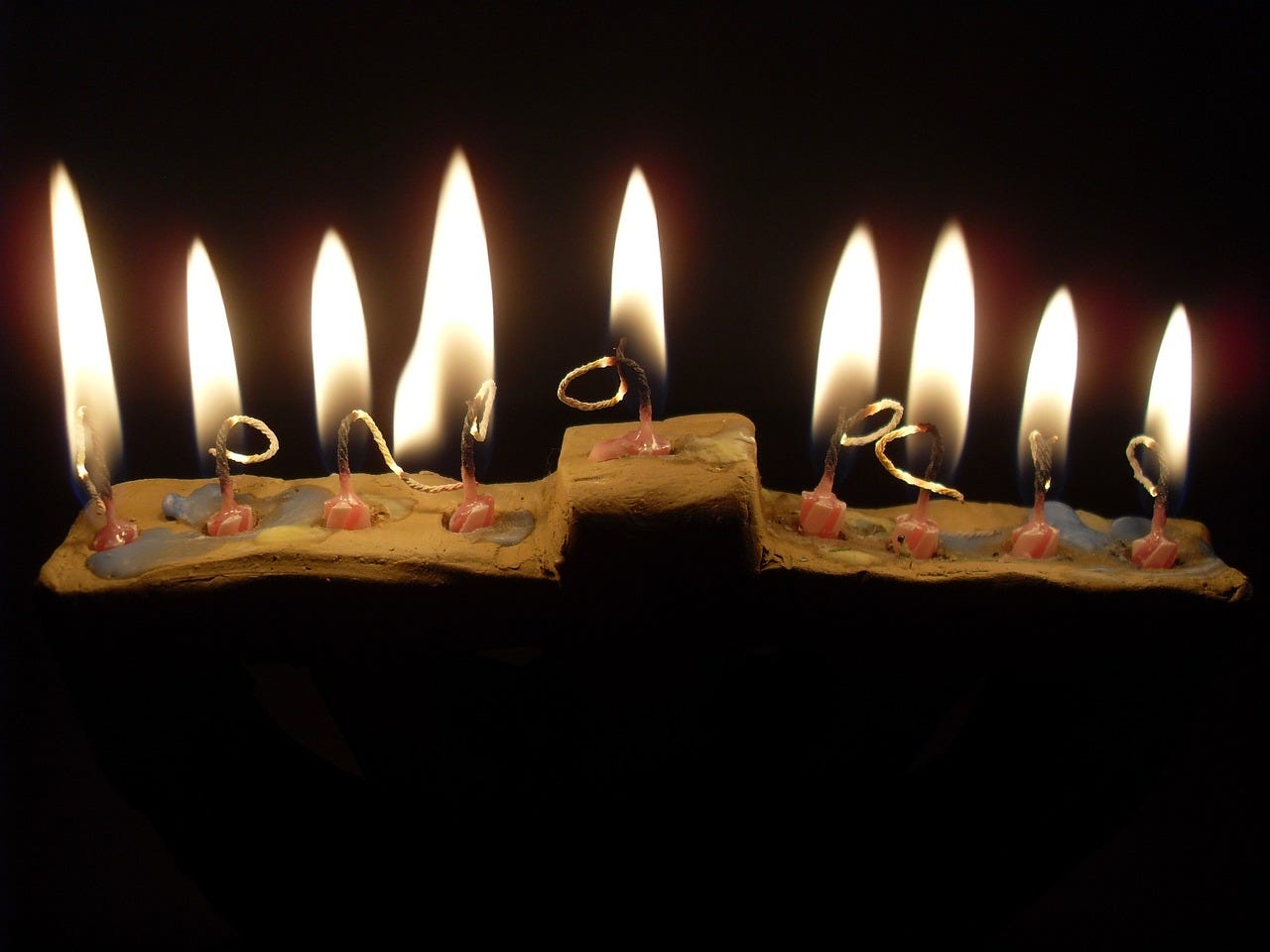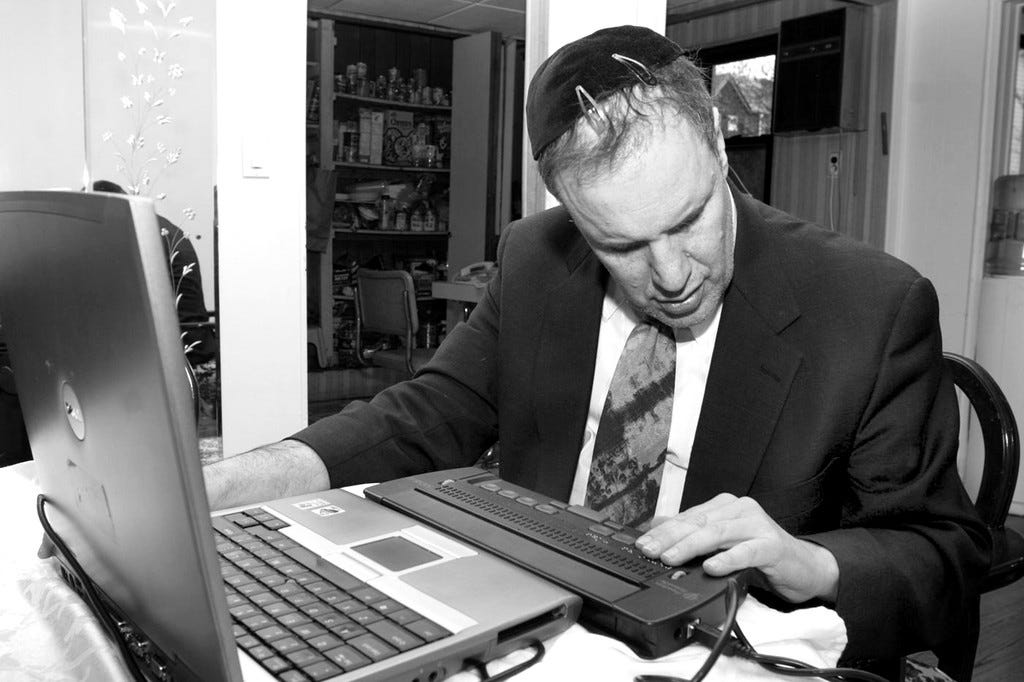Can one live many years, busy with chores and challenges, only to realize one day that all along, he had been living as in a dream?
1. Pharaoh's Dreams
In Pharaoh’s dreams, he sees seven thin cows eat seven fat cows, and seven blasted ears of grain eat seven healthy ones. The dream narrative concludes with a compelling detail: "And Pharaoh awoke, and behold--it was a dream!"(Genesis 41, 7.)
We imagine Pharaoh musing, "I, the most powerful man in the world, am overpowered by dreams. The whole time I saw these cows and this corn, I thought I was awake. That's how real they were. Only when I physically woke up did I realize that the shocking events were a dream. But something about the dream is more real than my waking life!”
What could jolt a person more than the suspicion that his dreams pointed to a reality which he had not known previously?
2. Zecharyah's Dream
Imagine meeting Zecharyah before he had any prophetic visions. If you asked him, "Are you truly awake?" He might cast you a pitying glance as he quickly distanced himself from you.
But after his prophetic vision, (the Haftarah we read on Shabbat Hanukkah,) your question would come back to haunt him.
One of his visions begins, "And the (divine) messenger who had been speaking to me returned, and he awakened me as a man wakes from his sleep." (Zecharyah 4, 1.)
As Zecharyah sees a menorah and wonders what it means, one can imagine him thinking, "All these years, comfortably busy with chores and challenges, I considered myself to be truly awake. The power of world empires was a predictable reality. But now that I am truly awake, I realize that something was missing."
The missing element is the message that Zecharyah receives in this new state of wakefulness: "'Not through valor, and not through strength, but through my spirit,' says the Lord of Hosts." (ibid. verse 7.)
In other words, don't look for ultimate reality in earthly chores and challenges, or in mortal monarchies. Look for it in "My Spirit." This message heartened a despairing people in the Babylonian empire, and heartens us as we remember the miracles of Hanukkah.
3. My Dream
In my dream, I am listening to the radio. Constantly, 24 hours a day, every three or four minutes, on one station or another, it broadcasts symbols of power: traffic updates, sports, financial reports.
In my dream, we laud Elon Musk, civilians who pay millions of dollars to prove they are astronauts, and startup companies which give birth to billionaires overnight.
In 2000, we watched a parade of Yankees down the Canyon of Heroes. It would warm the heart of any Hellenist.
My dream is very real. Busy with earthly chores and challenges, I imagine that I am truly awake.
But every Hanukkah, the menorah's light calls "Wake up!" Not by might, and not by valor, but by my spirit. Some say the light partakes of the light of the Holy Temple's menorah, and even of the hidden light of creation!
Though my dream has almost complete power over me, the Hanukkah message will not be stilled. I MUST NOT cede power to the “disability industry,” which too often ignores God’s spirit as it (perhaps unintentionally) ignores the divine spirit which pulses through us just as it pulses through the nondisabled. It does not acknowledge that, awakened by the Divine Spirit, we can achieve what others TELL US is impossible.
4. Israel's Dream
Every Shabbat, we introduce the Birkat Hamazon with "Shir Hama-alot, A Pilgrimage Song." When God brought back those who returned to Zion, we were as dreamers.
In light of the dreams described above, perhaps this verse means: When we were in exile, we considered it the ultimate reality. Now that we have been redeemed and are truly awake, we realize that ‘we were as dreamers’ in our ‘reality’ of exile.
Our beloved homeland has been ravaged by unspeakable atrocities. As strongly as we can, we must cleave to the Divine Spirit and strive to do what we believe is Holy and Right, even if nobody else does.
Hanukkah will leave us soon. May its light linger, ushering in the true awakening.
Perhaps when we are truly awake and redeemed, the spirit of God will be as discernable as plainly as today's earthly symbols of power.
A native of Bradley Beach, New Jersey, Rabbi Michael Levy attributes his achievements to G-d's beneficence and to his courageous parents. They supported him as he learned to travel independently, visited Israel, and became more Jewishly observant. For 65 years, JBI International supported him with braille and recorded Judaica material.
He received rabbinic ordination from the Jewish Theological Seminary in 1981 and an MSW from Columbia University in 1982.
As a board member and now President of Yad Hachazakah, Rabbi Levy strives to make the Jewish experience and Jewish texts accessible to Jews with disabilities. In lectures at synagogues, camps, and educational institutions, he cites Nachshon, who according to tradition boldly took the plunge into the Red Sea even before it miraculously parted. Rabbi Levy elaborates, "We who have disabilities should be Nachshons--boldly taking the plunge into the Jewish experience, supported by laws and lore that mandate our integration.”
He applauds Jewish Disability Inclusion News’s ambition to give voice not just to those who work with the disabled, but also to people with disabilities themselves. “About us? Not without us” he is fond of reminding those eager to listen, and the media to whom the maxim may be out of their comfort zone.
For over 20 years, Rabbi Levy served as director of Travel Training at MTA New York CityTransit. Now retired, he is an active participant in Congregations Aish Kodesh and Young Israel in Woodmere, New York. Most of all, he relishes the company of his children, grandchildren, and large extended family.




